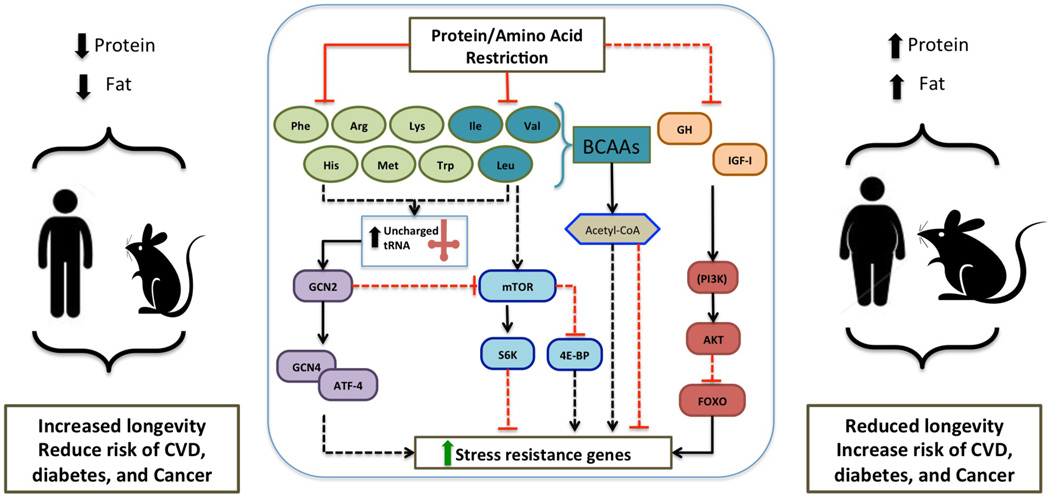Figure 2. Model of pro-aging nutrient signaling pathways altered by protein and amino acid restriction in mammals.
Intake of high levels of protein and fats, especially from animal sources has been associated with decreased healthspan in both humans and mouse models. In contrast low levels of dietary protein, in particular protein derived from plants, show an inverse correlation to risk of cardiovascular disease (CVD), diabetes, and some types of cancers as observed in human and mouse models. Pro-aging pathways are inhibited through restriction of protein or amino acids via amino acid sensing mTOR and GCN2 pathways. Restriction of essential amino acids results in elevated uncharged tRNAs, which in turn activates the amino acid deficiency sensing GCN2 pathway yielding reduced mTOR network activity. Branched chain amino acids, Ile, Val, Leu, affect production of acetyl-CoA, which in turn plays a role in regulation of lifespan by modulating activity of autophagy response. Direct role of GH/IGF-I signaling remains to be elucidated. Cytoplasmic availability of acetyl-CoA differentially regulates autophagy and subsequently modulates longevity.

